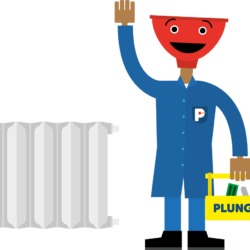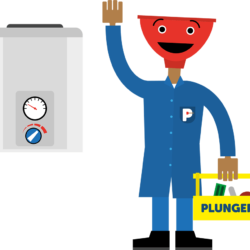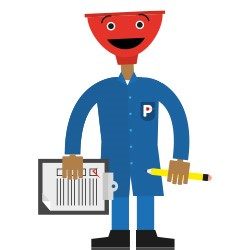Gas safety is something that a lot of people either forget about or simply don’t regard as being that important.
So, what’s the big deal?
Well, according to the Gas Safe Register, one in six of the 142,000 homes it inspected between 2010 and 2015 had dangerous gas appliances. This resulted in six deaths and more than 300 injuries in just 2015 alone.
Left unchecked, faulty gas appliances can cause fires, carbon monoxide (CO), gas leaks, poisoning and explosions, which can cause thousands of pounds of damage to a property and put peoples’ lives at risk. And not to mention the sizeable fine or risk of imprisonment involved as well.
As a landlord or employer, it’s your responsibility to keep your premises gas safe for tenants and employees. The only problem is that the government’s Gas Safety (Installation and Use) Regulations are about as clear as mud.
With this in mind, our expert team here at Plunger have put together a conclusive guide on how to become gas safe. (You can thank us later.)
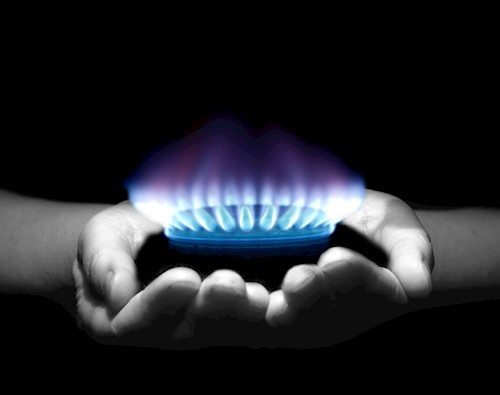
What Are My Gas Safety Obligations as a Business Owner or Landlord?
As a landlord, portfolio landlord or a business owner, it’s your responsibility to make sure that you keep your tenants and employees safe when they’re on the premises.
The gas safe regulation states that you must:
- Keep pipework, flues and gas appliances in a safe condition
- Get a Gas Safe Registered Engineer to conduct an annual gas safety check on all gas appliances and flues every year – including boilers, pipes, ovens and cooking hobs
- Keep a gas safety certificate – otherwise known as a CORGI Proforma 12 (CP12)
- Provide your tenants (if applicable) with a copy of the gas safety certificate
With an alarming amount of people unknowingly calling in an illegal gas fitter to carry out routine checks and fit gas appliances, it’s vital that you check to see their ID card to ensure that they’re a Gas Safe Registered Engineer beforehand.
While it’s not technically your responsibility to check if any gas appliances a tenant or employee brings into the property are gas safe or not, it’s worth getting the engineers to check these at the same time too.
After all, if their unsafe gas appliance causes the house or office to burn down, you’ll be the one who has to go through the stress of claiming insurance to fund the repairs.
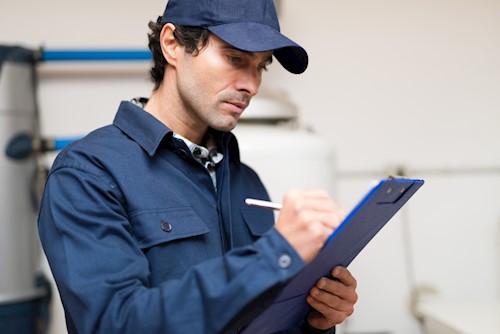
Keeping a Gas Safety Certificate (CP12)
Every 12 months, it’s your legal responsibility to get each appliance and flue you supply in the property checked by a Gas Safe Registered Engineer.
If they find any faults, you must stop any employees of tenants from using them and fix them immediately. Once this has been done, you then have to document all of this on the business or landlord gas safety certificate and keep it for at least two years.
As a landlord, you should provide a copy to your tenant within 28 days of the check being completed and keep one for yourself.
If you don’t have a gas safety certificate for a rented property or fail to give a copy to a new tenant, you won’t be able to legally evict them with a section 21 notice.
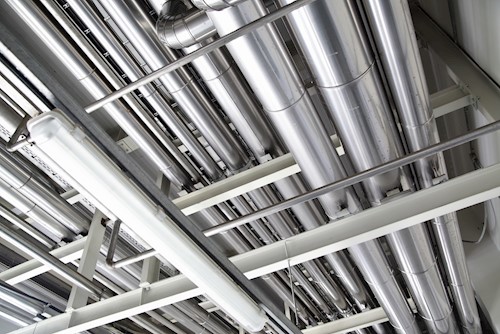
How to Maintain Pipework, Flues and Gas Appliances
To make sure that you keep all appliances and fittings safe throughout the year, it’s important to get them serviced and repaired whenever necessary.
Although you’re not required to keep a record of any maintenance work, it’s useful to have for tax expense purposes and in the event of any gas safety related issues.
For the best results all-year-round, here’s a breakdown of what kind of steps your Gas Safe Registered Engineer should be taking:
- Pipework maintenance – you might not be legally responsible for the pipework, but it’s always good to get it visually examined and test the soundness of the whole gas system itself.
- Appliance and flues maintenance – as a landlord or business owner, you’re legally responsible to repair any damages found. Your Gas Safe Registered Engineer should examine the physical condition and safe functioning of the appliance(s), installation pipework, ventilation and any deterioration of any flue. This includes carrying out performance tests, a service, and fixes.
You’re not responsible for maintaining any appliance owned by a tenant or employee. However, you might be for any pipework that’s connected to it.
Call in the Experts
So, what are you waiting for? If your annual gas safety check is due or you need a related maintenance job seeing to, our expert team of Gas Safe Registered Engineers here at Plunger are on call 24 hours a day, seven days a week.
Plus, with upfront fixed pricing, there’s no smoke and mirrors – just a simple, transparent cost.
Don’t leave it to chance, safeguard your tenants or employees by booking a plumber online now.


